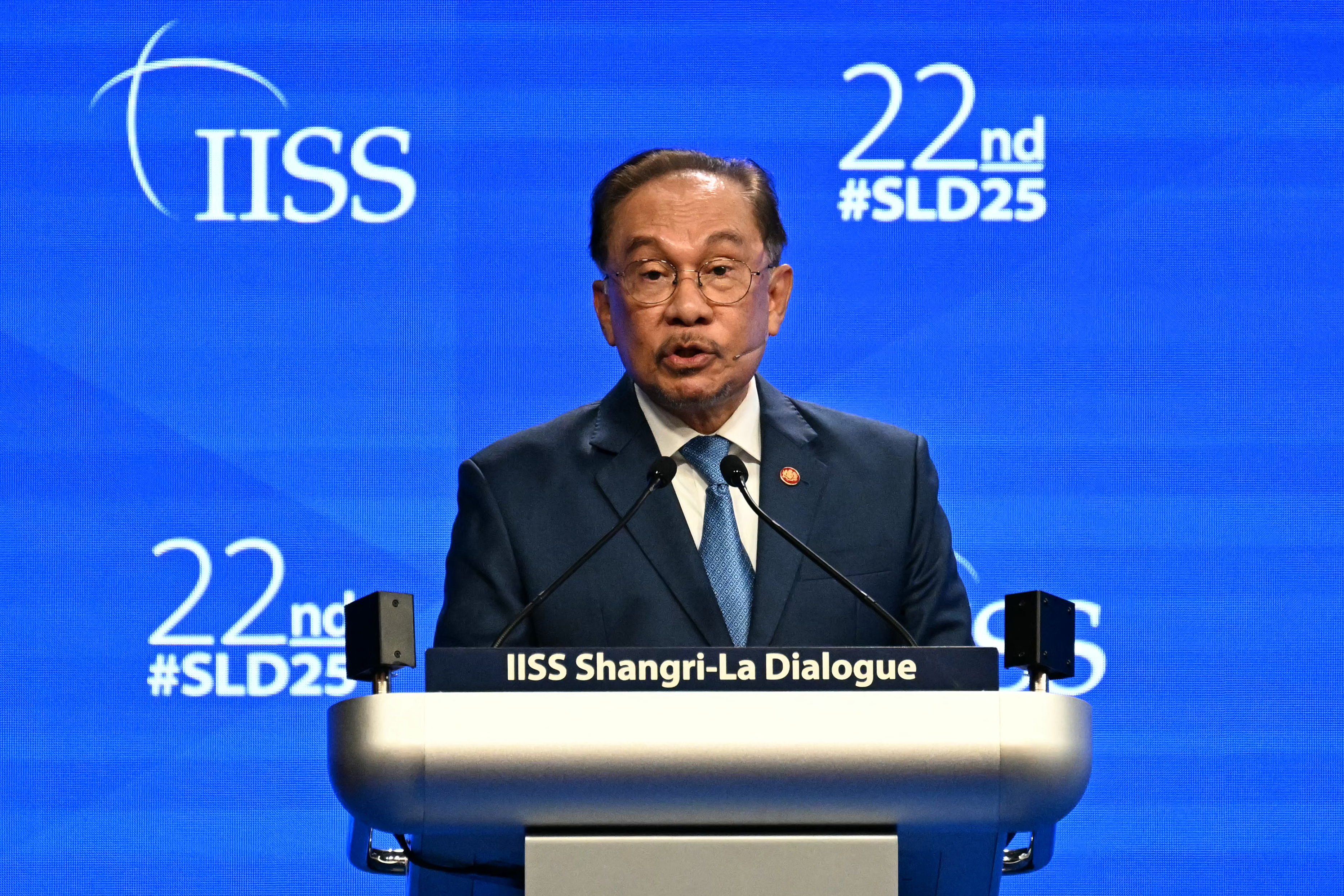
United States defense secretary Pete Hegseth's speech at the Shangri-La Dialogue in Singapore on Saturday attempted to drive a wedge between China and ASEAN countries, filled with Cold War and confrontational thinking, an expert said, emphasizing that this approach has little effect on regional nations.
In his keynote speech, US's Hegseth urged Asia-Pacific countries to increase their military spending to 5 percent of GDP to counter perceived threats from China in the region, including in the South China Sea and the Taiwan Strait.
Following US speech, Anwar Ibrahim, the Prime Minister of Malaysia, the current chairmanship of ASEAN, warned against the dangers of bloc confrontation in his speech at the summit, stressing that the South China Sea issue needs to be resolved through dialogue rather confrontation.
ALSO READ: Shangri-La Dialogue 2025 kicks off in Singapore amid geopolitical tensions
Da Wei, director of the Center for International Security and Strategy at Tsinghua University, said that the accusations from the US against China are filled with severe confrontational mentality, which is not constructive for current China-US relations, especially as the two countries are still in trade negotiations.
"I think the US attempt to divide China and Asia-Pacific countries is ineffective because it lacks persuasiveness," he said, who is also a delegate at the Shangri-La Dialogue.
"Will regional countries agree with the US?" Da asked, noting that regional countries already have a good foundation for cooperation and relations with China, and that a few provocative remarks from the US won't completely change that.
Just hours after the US defense chief's speech, Malaysia's Anwar warned in another speech at the dialogue that "when major powers attempt to divide the world into exclusive zones of control, smaller nations are often left voiceless."
READ MORE: Malaysia’s PM Anwar writes to Trump seeking summit with Southeast Asia
"Malaysia does not believe in spheres of influence," he said. "Stability does not come from carving up the map, but from creating space for all to participate meaningfully in shaping the order we live in."
Additionally, Anwar suggested that the South China Sea issue "is best pursued through steady, principled diplomacy, quiet, when necessary, but always firm."
The Southeast Asian leader said, "We have no interest in seeing tensions spiral into confrontation ... We will urge restraint, encourage dialogue, and aim to preserve the stability on which this region depends."


